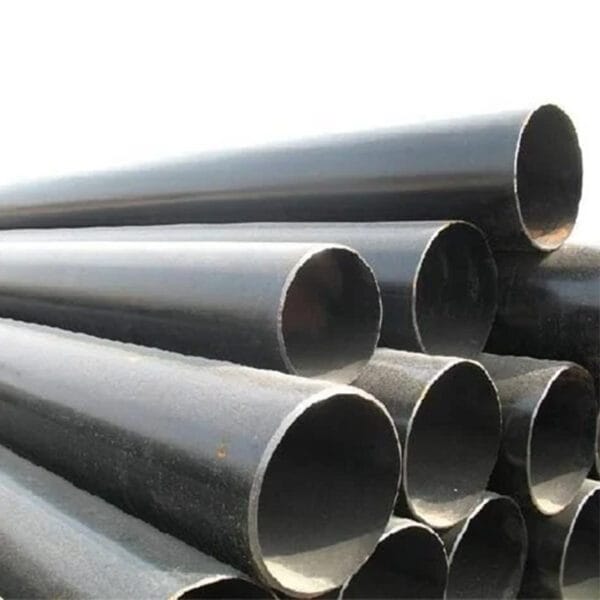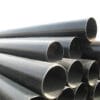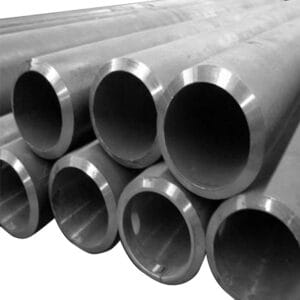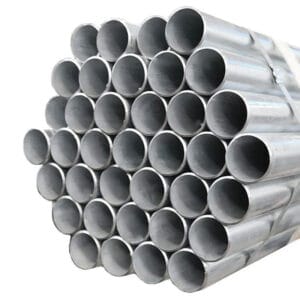Description
Steel Casings: Essential Solutions for Industrial and Infrastructural Projects
Steel casings are designed for industrial and infrastructural use, including water and sewage systems, and oil and gas pipelines. Their oversized dimensions make them suitable for carrying large volumes over long distances. These products are specifically designed and manufactured to meet the highest standards in the industry. They undergo rigorous quality control processes to ensure that they are durable, reliable, and suitable for a wide range of applications. Whether you’re working on a small residential project or a large industrial development, these materials provide the strength and support needed to ensure the success of your construction. Their versatility and adaptability make them an essential component in modern engineering and architecture.
Steel casings represent a fundamental element in modern infrastructure, serving as protective outer shells for various pipeline systems. These robust structures are engineered to withstand extreme environmental conditions while safeguarding the vital systems they contain. Through meticulous manufacturing processes and stringent quality control standards, steel casings consistently deliver exceptional performance in infrastructure projects where reliability and longevity are paramount.
Read More
Manufacturing Excellence and Quality Standards
The production of steel casings follows exacting specifications (view ASTM standards) that ensure consistent quality and performance. Each casing undergoes comprehensive testing to verify its structural integrity and protective capabilities. The manufacturing process incorporates advanced metallurgical techniques and precise dimensional control to create casings that meet or exceed industry requirements.
Material Selection and Properties
Steel casings are fabricated from carefully selected grades of steel that offer:
- Optimal strength-to-weight ratios
- Superior corrosion resistance
- Exceptional load-bearing capacity
- High impact resistance
- Long-term durability
Applications Across Industries
Underground Infrastructure
Steel casings play a vital role in protecting underground utilities:
- Water distribution networks
- Sewage systems
- Telecommunications conduits
- Electrical power lines
- Gas distribution systems
Oil and Gas Industry
In the petroleum sector, steel casings are essential for:
- Pipeline protection at road crossings
- River crossing installations
- Railway crossing security
- Environmental protection zones
- High-risk terrain segments
Comprehensive Risk Assessment
A thorough risk assessment process for steel casing projects encompasses several critical areas:
- Geotechnical considerations including soil stability and groundwater conditions
- Environmental impact evaluations covering both short-term and long-term effects
- Construction methodology selection based on site-specific challenges
- Traffic management planning for installations near transportation infrastructure
- Emergency response protocols for potential installation complications
The development of detailed contingency plans forms an essential part of the risk management strategy. These plans outline specific responses to various scenarios that might arise during installation, ensuring that project teams can respond quickly and effectively to any challenges. Additionally, the risk assessment process helps identify opportunities for optimization, potentially leading to improved project outcomes and reduced implementation costs.
Technical Specifications and Engineering Considerations
The design and implementation of steel casings require careful attention to:
Dimensional Requirements
- Diameter specifications based on carrier pipe size
- Wall thickness calculations for load conditions
- Length determinations for crossing distances
- Clearance allowances for installation
- End seal specifications
Installation Methodologies
Professional installation of steel casings involves specialized techniques (explore installation guidelines) including:
Installation Methods
- Horizontal directional drilling
- Jack and bore operations
- Open cut installation
- Tunnel boring procedures
- Micro-tunneling techniques
Environmental Protection and Safety Features
Steel casings contribute significantly to environmental protection through:
- Groundwater contamination prevention
- Soil stability maintenance
- Ecosystem preservation
- Leak containment capabilities
- Structural support for surrounding soil
Maintenance and Inspection Protocols
Regular maintenance ensures the ongoing effectiveness of steel casing systems:
Inspection Requirements
- Periodic integrity assessments
- Corrosion monitoring programs
- Cathodic protection verification
- Joint inspection schedules
- Environmental impact evaluations
Regulatory Compliance and Standards
Steel casings must meet strict regulatory requirements (reference safety standards) including:
- Federal safety regulations
- State-specific requirements
- Local building codes
- Environmental protection standards
- Industry-specific guidelines
Innovation in Casing Technology
The steel casing industry continues to advance through:
- Enhanced coating technologies
- Improved installation methods
- Advanced monitoring systems
- Sustainable material development
- Smart sensing capabilities
Economic Benefits and Long-term Value
Investment in quality steel casings provides significant advantages:
- Reduced maintenance costs
- Extended infrastructure life
- Lower replacement frequency
- Improved system reliability
- Enhanced asset protection
This comprehensive examination of steel casings demonstrates their crucial role in modern infrastructure and industrial applications. Understanding their specifications, applications, and maintenance requirements helps ensure optimal system design and long-term operational success.
Technical Specifications
Please call for inquiries on specifications.
Standard Properties:
- Material: Carbon Steel
- Grade: ASTM A53/A252
- Finish: Black/Bare
- Weld Type: ERW/Seamless
- Surface: Plain End/Beveled
Application and Uses
Underground Construction:
- Pipeline protection
- Utility crossings
Water Infrastructure:
- Water well casings
- Bore hole linings
Civil Engineering:
- Bridge foundations
- Highway underpasses
Special Applications:
- Microtunneling
- Trenchless installations






